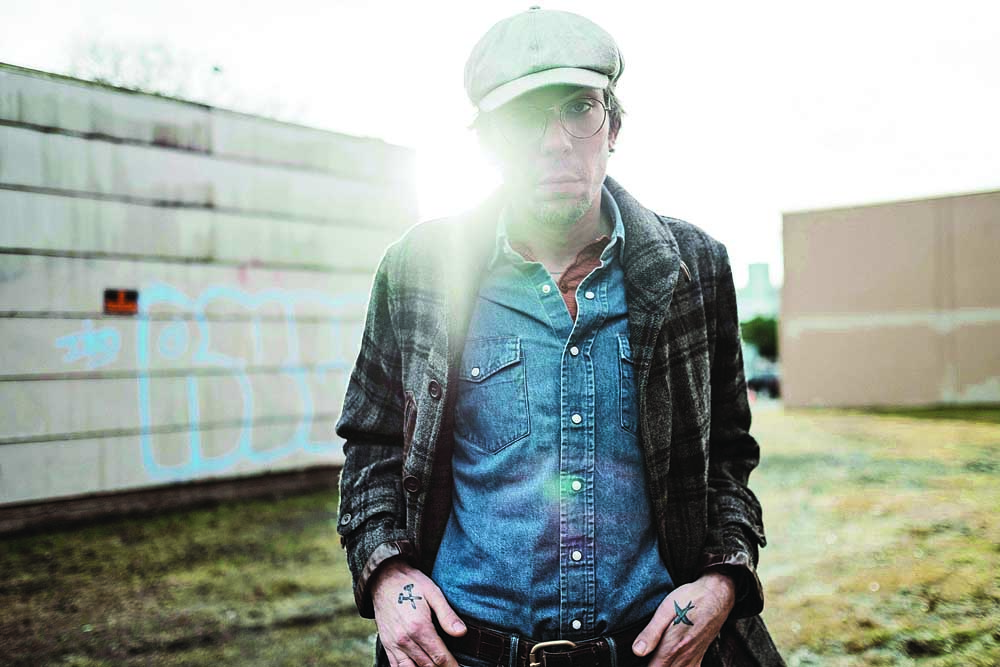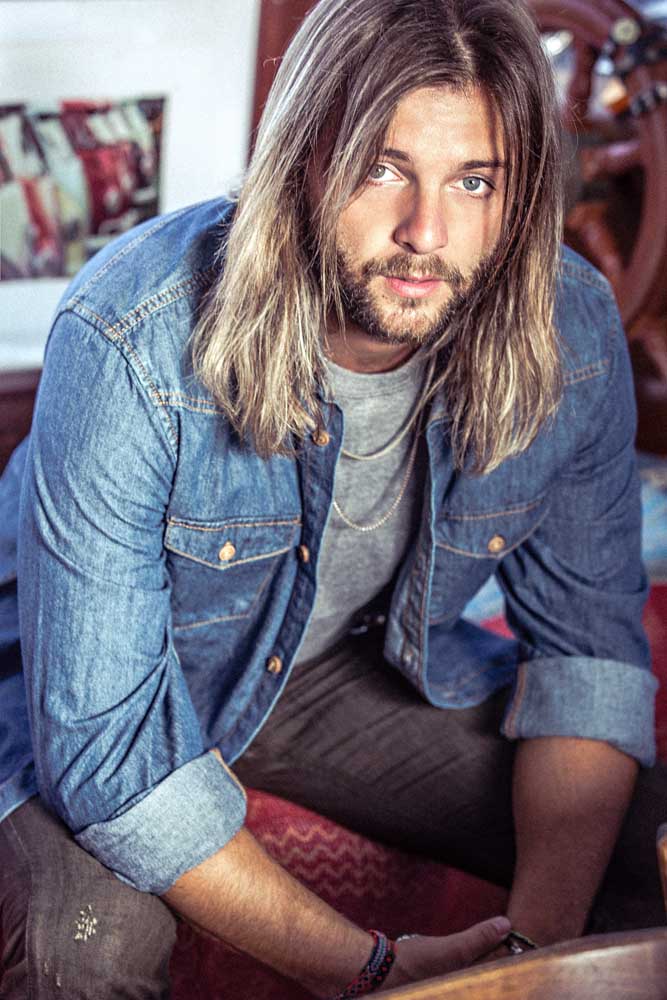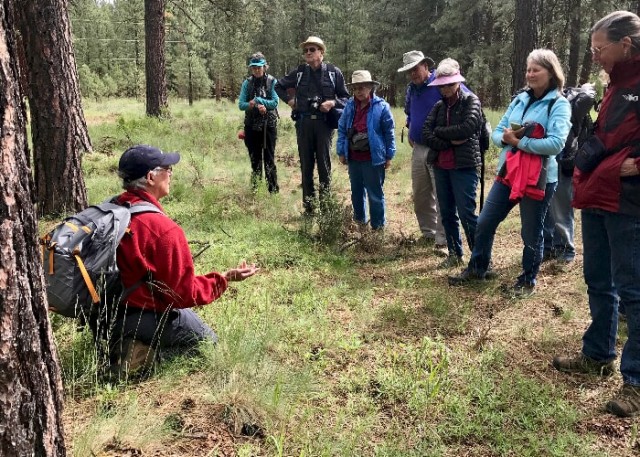Dar Williams makes Sisters Folk Festival debut
Published 12:00 am Thursday, September 6, 2018

- Talisk(Submitted photos)
Dar Williams calls it “positive proximity” — people living close together and working side-by-side in small communities around the country.
As a folk artist who primarily plays coffeehouses as opposed to arenas, Williams has seen this phenomenon firsthand in many small towns and cities across the country. It inspired her to write a book, “What I Found in a Thousand Towns: A Traveling Musician’s Guide to Rebuilding America’s Communities — One Coffee Shop, Dog Run, and Open-Mike Night at a Time” — which, as the title suggests, examines how communities Williams has visited over the years have improved their infrastructures, economies and more through positive proximity.
Trending
“I’ve been looking at that over a number of years, and then there was an arc that I was seeing overall that towns were improving,” Williams said recently from her home in the Hudson Valley region of New York. “Less of them were wrestling with drug deals on every corner, and more of them were dealing with how to deal with the success of their downtowns in terms of gentrification and affordability, and there’s a difference between improving your town and gentrification.”
Williams could easily have been describing the Sisters Folk Festival, which she will perform at for the first time this weekend. The 22nd edition runs Friday through Sunday and features more than 50 performers spread out at 11 venues (including two free venues, Fir Street Park and Sisters Coffee Company) around the town.
It’s perhaps surprising Williams has not performed in Sisters before, given the book and her career trajectory — although she has played in Bend numerous times. But Sisters Folk Festival’s reputation precedes itself in the roots music community.
“When we know that that feeling of positive proximity is a force amongst us, we can build on it and create things like the Sisters festival,” Williams said. “The Sisters Folk Festival is a perfect example of people who knew what they had and rubbed two sticks together and made a giant campfire, and then it became a bonfire, and then other people saw it from a distance and said, ‘Oh, I want to do that too.’ And now they’re building other things, other kinds of festivals and events around that.”
She shared this sentiment with Brad Tisdel, the festival’s creative director, when the two met before she was booked to perform.
“I saw her in Kansas City and spoke with her about (the book), and when I said Sisters, she just stopped and was like, ‘I’m sorry, where are you from?’” Tisdel said. “She goes, ‘Oh, I’ve always wanted to come to Sisters because of what I believe is so important and what you guys are doing.’ So that was very gratifying.”
Trending
The festival returns after a rough couple of years. Last year, the festival was canceled for the first time in its history due to smoky conditions from wildfires in the area. Central Oregon has already seen smoke-filled skies this summer, and while festival organizers are not anticipating a repeat of last year, contingency plans are in place, Tisdel said.
“What we do I think was missed last year, and the sort of either celebration tone or the resetting of a new year (with the festival), that didn’t happen,” Tisdel said. “And so I think there’s a lot of anticipation.”
“For the last two or three weeks, both Brad and I have been looking at alternative locations in Sisters,” Ann Richardson, managing director for the Sisters Folk Festival organization, said. “We really believe this is a Sisters event, and we want it to be in Sisters and stay in Sisters even if something should happen.”
About 70 percent of 2017’s scheduled performers will get their shots on a Sisters Folk Festival stage this year, including headliners Justin Townes Earle (read an interview with Earle from last year here), Robbie Fulks and Amy Helm (daughter of The Band’s Levon Helm). The rest are new additions this year, including Williams, rising Portland songwriter Haley Heynderickx, Hawaii soul group Ron Artis II & The Truth and Scottish band Talisk. Visit sistersfolkfestival.org or pick up a copy of the fall Sisters Magazine for a full schedule of performers and venues.
Williams is also an instructor at this year’s Americana Song Academy, the songwriting camp held each year before the festival at Caldera Arts Center (this year’s camp kicked off Tuesday and concludes Friday afternoon). For the last six years, Williams has run a songwriting retreat titled Writing a Song that Matters at The Garrison Institute in Garrison, New York, and also taught a course on music history at her alma mater, Wesleyan University.
At her retreats, Williams focuses on encouraging new songwriters to write about what they want to write about, touching on voice, inspiration and song structures. Through teaching others, her own songwriting has continued to evolve, she said.
“I have this recommendation that people just write down a page of whatever feelings are getting in the way of sitting down and letting that poetic window open, and then sitting with an empty page or lyrics that you’ve started or a little doodle you draw or something,” Williams said. “And at one of my retreats, somebody said, ‘Do I have to write that page of feelings first? If I’d rather just start and try to get that poetic window open, can I just do that?’ And I realized that that’s a wonderful option, and now I in my writing — sometimes I’ll sit and write out a page of feelings, but more often I’ll just sit down with an empty page and see what happens.”
The teaching and the book are the latest examples of Williams’ social and political advocacy. Since her 1993 debut album, “The Honesty Room,” Williams has tackled religion, gender issues and self-image with heart and humor on signature songs such as “When I Was a Boy,” which details her experiences growing up as a tomboy, and “The Christians and the Pagans,” about a lesbian couple spending Christmas with a conservative Christian uncle.
After parting ways with longtime label Razor & Tie, Williams crowd-funded her ninth and most recent studio album, 2015’s “Emerald.” She is currently working on songs for a follow-up, inspired in part by “What I Found in a Thousand Towns.”
“I’ve kept on thinking the songs will have no relationship to the book, but I see hints here and there of how the themes of how people find their way from the inside of their homes into the outside world are coming up here and there,” Williams said. “But I also think that might be related to the way the world is right now. I think people are recognizing the myth of division — recognizing that they’re being told that they totally suck and recognizing that they don’t at all. My big phrase coming out of the book was the opposite of division is not unity, it’s collaboration.”








